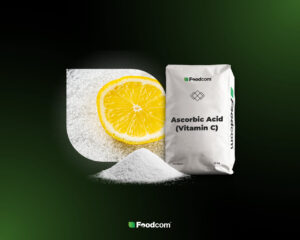- Dietary supplements are special foods that supplement the daily diet because they contain valuable nutrients.
- The manufacturing process of dietary supplements includes sourcing of raw materials, quality testing, formulation, mixing and packaging according to regulations.
- The key ingredients of dietary supplements include Vitamin C, Magnesium Oxide, Sunflower Lecithin and Xanthan Gum.
- The demand for dietary supplements is expected to increase due to health concerns, increased physical activity, and an aging population.
Dietary supplements – what are they?
Dietary supplements are special foods designed to supplement the daily diet. They are a concentrated source of vitamins, minerals and other valuable nutrients that have a positive effect on the health and function of the body.
Such supplements are available in various forms, such as capsules, tablets, coated tablets or powder in sachets. They are also available in liquid form.
Benefits of dietary supplements
Dietary supplements have various effects due to their different composition. Among the advantages of their use are:
- strengthening the immune system – such dietary supplements contain mainly vitamins and minerals, support of the body’s defenses against infections,
- support of memory and concentration – the ingredients of dietary supplements may have an effect on brain function and thus support cognitive function,
- positive effect on the function of the skeletal system – dietary supplements containing collagen, calcium or vitamins D and K have an effect on bone health and prevent various diseases,
- support for physically active people – dietary supplements may contain ingredients that promote muscle recovery, improve performance or reduce fatigue.
Dietary supplements typically supplement deficiencies in Vitamins, Minerals, and other nutrients, so they may also improve skin, hair, and nail health or support healthy digestion.
Production of dietary supplements
The process of manufacturing dietary supplements begins with sourcing raw materials, which must be of high quality and purity. They are then tested to ensure that they meet the required standards. The next step is to create the product formula by carefully combining raw materials in the right proportions and producing the product through processes such as mixing, grinding, pelletizing and drying. After manufacturing and testing, the product is packaged and labeled according to regulations. The label must include the product name, serving size, ingredient list and any health claims.
A quality control checklist is followed at all stages of the production process to ensure that the manufactured product meets the manufacturer’s strict standards and regulatory requirements.
Ingredients of dietary supplements
The manufacturing process also depends on selected ingredients that form the basis of any dietary supplement. These ingredients are crucial for the quality and effectiveness of the product. The most common nutritional and functional ingredients used in dietary supplements are:
- Vitamin C (Ascorbic Acid) – is an antioxidant, meaning it helps neutralize harmful free radicals in the body. In addition, Vitamin C is included in many supplements to support the immune system, as it helps stimulate the production of white blood cells, which in turn protect the body from infections. In addition, it is involved in the synthesis of Collagen and seals and strengthens blood vessels.
- Magnesium Oxide – is a mineral that has many benefits, such as supporting muscle function, improving nervous system function, reducing feelings of fatigue, stress and anxiety, and increasing cognitive abilities.
- Sunflower Lecithin – supplements with sunflower lecithin promote memory and concentration. They also help maintain homocysteine levels, control fat metabolism and support liver function.
- Xanthan Gum – is used in the manufacture of dietary supplements as a thickening agent. In addition, Xanthan Gum added to tablets contributes to the gradual release of the active ingredient by ensuring that the tablets dissolve slowly after ingestion.
Dietary supplements – market trends
Today’s market for dietary supplements continues to be in a dynamic development process and shows a steadily growing trend. Market forecasts indicate that this sector will continue to expand in the coming years. There are several key factors driving this growth.
One of the factors driving the dietary supplement market is the fact that consumers are increasingly focusing on their health and taking proactive steps to treat and prevent potential diseases. The number of people who are physically active and use protein, energy or weight loss supplements is also increasing. Demand for dietary supplements is also being driven by the aging population, which may require additional support in the form of supplements to address nutrient deficiencies and age-related diseases.
Why Foodcom?
Our great team of Sales Support will help our Traders conduct the contract and business deals in a smooth and efficient way to ensure the best quality service to all our Business Partners. Our logistics team will take care of transportation and the financial department will be responsible for all matters connected with the financial part of the deal. Do not hesitate! Contact us.










